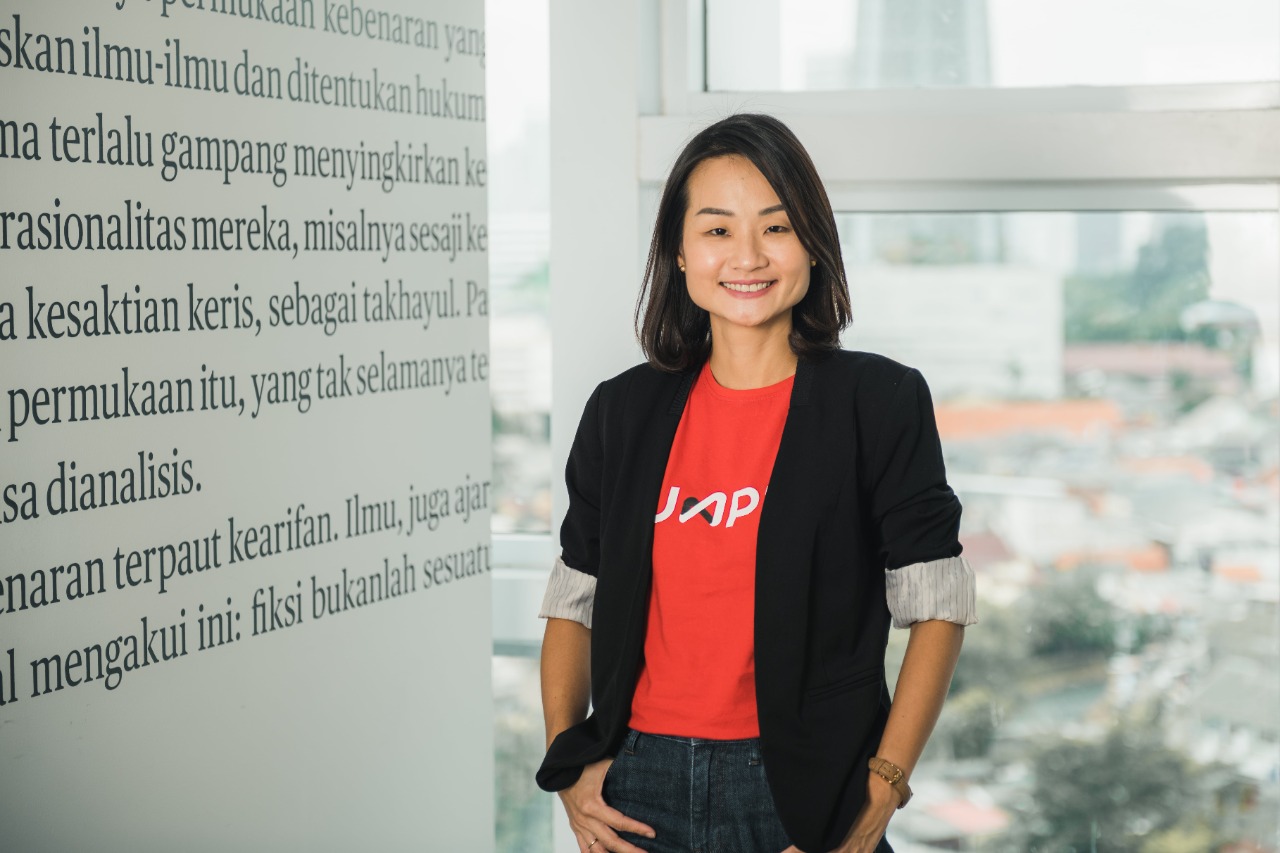CEO and Co-founder of KUMPUL.ID
Faye Alund is all about impact. An active ecosystem builder who believes in the power of networking, Faye creates spaces that invite women and minorities to come in and participate.
“I thought about what kind of work I wanted to do – is it helping the rich getting richer, or do I want to do something with my life?” Faye contemplated.
Born and raised in Jakarta as a middle-class Chinese-Indonesian, Faye always knew it was going to be tricky for her to achieve her dreams. Working in the government would be difficult for reasons that were mostly related to her ethnicity.
Eventually, after completing studies in psychology, she joined a nonprofit organization supporting conflict-affected populations, working as trauma counsellor in Pakistan, Zimbabwe, Yemen and many other areas went on for 12 satisfying years. But driven by her thirst for impact, Faye started to seek more.
“I started to wonder how we can push economic development,” Faye said. She quickly realized that entrepreneurship could be the key to Indonesia’s future she envisioned. “Not only do businesses generate income and provide employment but they also solve problems. A lot more businesses will solve more problems,” Faye said.
She concluded that the coworking business model would have the highest social impact for economic development. In 2014, together with her husband, Faye launched KUMPUL – a co-learning platform empowering coworking spaces to build ecosystems that focus on entrepreneur growth. KUMPUL curates programs and runs it through coworking spaces as the main catalyst for entrepreneurship ecosystem growth.
In early 2016, the couple began to gather other players and build awareness of the importance of coworking. What started with about 20-30 players grew to over 230 spaces spanning in 45 cities across Indonesia. The association – called Coworking Indonesia – now includes coworking spaces, makerspaces, creative hubs and creative communities.
As she started working with more women entrepreneurs at the grassroot level, Faye discovered certain constraints that limit their growth. Most were rooted in social responsibilities, such as taking care of children and parents, or being in charge of community’s traditional events. Faye saw that a lot of women fail because the dominating narrative in business and finance – as it has always been for centuries – is very masculine. Only women with so-called “masculine traits” usually thrive in the space.
“If you want to look at the population of women at large, not everyone [has those traits]. Now everyone must realize this first,” Faye said.
Faye never thinks of herself as a woman. In her mind, she is just someone who has something she wants to do, and she’s doing it all. But she recognizes the privilege she enjoys may not ring true for a lot others.
“After that realization [of privilege], I started to intentionally inject gender equality concepts in everything we do,” she affirmed.
At KUMPUL, up to 80% of the team are women. She also tries to make sure that 50% of their speakers are women. And the same for participants. She also tries to push inclusivity to go beyond women, including persons with disabilities.
The majority of small and medium enterprises (SMEs) in Indonesia are owned by women (51%). But the bigger the enterprises, the fewer women one finds. In total, women’s SMEs account for just 9.1% of Indonesia’s GDP, Faye said. “Now imagine if we can bring that up,” she added.
As an ecosystem builder, Faye believes that programs catering to the pre-business stage must be improved. Nurturing women-led entrepreneurs or women-impact businesses must focus at the very start of business growth, to ensure quality businesses survive at the end of it.
Faye is interested in increasing engagement and collaboration with women entrepreneurs and hopes to see more innovation from regulators. Beyond that, Faye encourages everyone to also think about how businesses can have a real impact on women.
Faye is an important figure in connecting startups across the country. She is a stellar example of how networking is vital for the entrepreneurship ecosystem.





